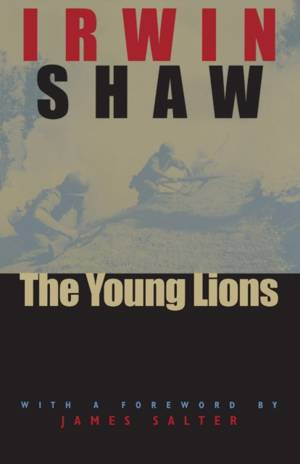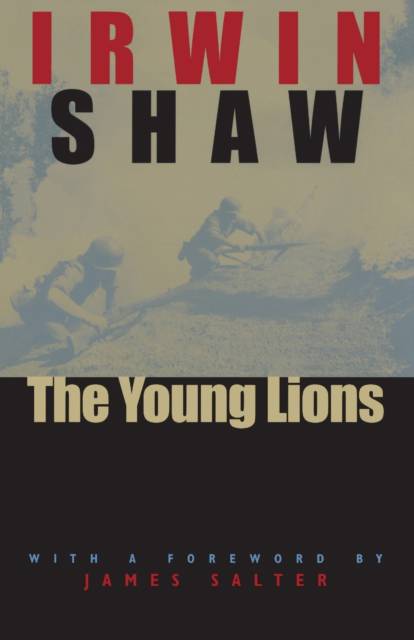
- Afhalen na 1 uur in een winkel met voorraad
- Gratis thuislevering in België vanaf € 30
- Ruim aanbod met 7 miljoen producten
- Afhalen na 1 uur in een winkel met voorraad
- Gratis thuislevering in België vanaf € 30
- Ruim aanbod met 7 miljoen producten
Zoeken
Omschrijving
A staggering classic of World War II that the New York Times called "the best war novel yet written by an American" In the immediate aftermath of World War II, countless American writers attempted to use fiction to convey the complicated experience they'd just undergone. Few of the novels that emerged from that period were as ambitious and powerful as The Young Lions, a sweeping, dramatic account of war from the point of view of ordinary solders that depicts the danger, excitement, trauma, and loss of a no-holds-barred global war.
When Irwin Shaw published The Young Lions, he was known solely as a writer of short stories, and his panoramic, detailed, unforgettable account of the war was met with nothing short of awe. Shaw tells his story from the points of view of a perceptive young Nazi, a jaded American film producer, and a shy Jewish boy just married to the love of his life. Together they enable us to see, decades lateer, as no other novelist has since, the scope, confusion, and complexity of war. This is a landmark novel that Washington Post critic Jonathan Yardley ranked with wartime classics like From Here to Eternity, The Naked and the Dead, and The Caine Mutiny. As James Salter writes in his foreword, "The Second World War was the central event of Shaw's generation. The writers who stand in some glory about its forgotten battlefields and whose novels came from firsthand knowledge--Mailer, heller, James Jones, Michener--include, indomitable in their midst. Irwin Shaw. He need not to have bowed to any of them then, or, if he were still alive, now."
When Irwin Shaw published The Young Lions, he was known solely as a writer of short stories, and his panoramic, detailed, unforgettable account of the war was met with nothing short of awe. Shaw tells his story from the points of view of a perceptive young Nazi, a jaded American film producer, and a shy Jewish boy just married to the love of his life. Together they enable us to see, decades lateer, as no other novelist has since, the scope, confusion, and complexity of war. This is a landmark novel that Washington Post critic Jonathan Yardley ranked with wartime classics like From Here to Eternity, The Naked and the Dead, and The Caine Mutiny. As James Salter writes in his foreword, "The Second World War was the central event of Shaw's generation. The writers who stand in some glory about its forgotten battlefields and whose novels came from firsthand knowledge--Mailer, heller, James Jones, Michener--include, indomitable in their midst. Irwin Shaw. He need not to have bowed to any of them then, or, if he were still alive, now."
Specificaties
Betrokkenen
- Auteur(s):
- Uitgeverij:
Inhoud
- Aantal bladzijden:
- 696
- Taal:
- Engels
- Reeks:
Eigenschappen
- Productcode (EAN):
- 9780226751290
- Verschijningsdatum:
- 1/12/2000
- Uitvoering:
- Paperback
- Formaat:
- Trade paperback (VS)
- Afmetingen:
- 140 mm x 216 mm
- Gewicht:
- 848 g

Alleen bij Standaard Boekhandel
+ 64 punten op je klantenkaart van Standaard Boekhandel
Beoordelingen
We publiceren alleen reviews die voldoen aan de voorwaarden voor reviews. Bekijk onze voorwaarden voor reviews.







